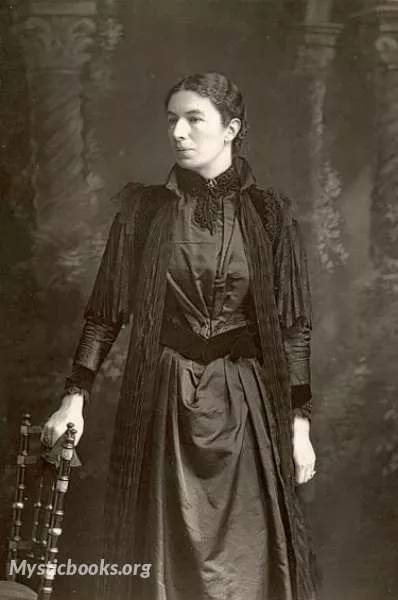
Timeline
Title
Country/Nationality
Mary Augusta Ward
Mary Augusta Ward was a British novelist who wrote under her married name as Mrs Humphry Ward. She worked to improve education for the poor and she became the founding President of the Women's National Anti-Suffrage League.
Mary Augusta Arnold was born in Hobart, Tasmania, Australia, into a prominent intellectual family of writers and educationalists. Mary was the daughter of Tom Arnold, a professor of literature, and Julia Sorell. Her uncle was the poet Matthew Arnold and her grandfather Thomas Arnold, the famous headmaster of Rugby School. Her sister Julia founded a school and married Leonard Huxley and their sons were Julian and Aldous Huxley. The Arnolds and the Huxleys were an important influence on British intellectual life.
Mary's father Tom Arnold was appointed inspector of schools in Van Diemen's Land (now Tasmania) and commenced his role on 15 January 1850. Tom Arnold was received into the Roman Catholic Church on 12 January 1856, which made him so unpopular in his job (and with his wife) that he resigned and left for England with his family in July 1856. Mary Arnold had her fifth birthday the month before they left, and had no further connection with Tasmania. On arriving in England Tom Arnold was offered the chair of English literature at the contemplated Catholic university, Dublin, but this was only ratified after some delay.
Mary spent much of her time with her grandmother. She was educated at various boarding schools (from ages 11 to 15, in Shifnal, Shropshire) and at 16 returned to live with her parents at Oxford, where her father had a lecturership in history. Her schooldays formed the basis for one of her later novels, Marcella (1894).
On 6 April 1872, not yet 21 years old, Mary married Humphry Ward, a fellow and tutor of Brasenose College, and also a writer and editor. For the next nine years she continued to live at Oxford, at 17 Bradmore Road, where she is commemorated by a blue plaque. She had by now made herself familiar with French, German, Italian, Latin and Greek. She was developing an interest in social and educational service and making tentative efforts at literature. She added Spanish to her languages, and in 1877 undertook the writing of a large number of the lives of early Spanish ecclesiastics for the Dictionary of Christian Biography edited by Dr William Smith and Dr. Henry Wace.[14] Her translation of Amiel's Journal appeared in 1885.
Ward supported the opening of Oxford University to female students. She was a member of the Lectures for Women Committee, which met from 1873 and organised courses of lectures with an optional final examination for women. With other members of the committee she formed the Association for the Education of Women, which supported the opening of halls for women students in Oxford.
Ward became very involved in the negotiations surrounding the foundation of Somerville College in Oxford in 1879. She suggested that the new institution should be named after Mary Somerville. Ward was appointed as the first secretary of the Somerville Council and prepared for the arrival of new students despite being eight months pregnant when Somerville opened in October 1879.
Ward began her career writing articles for Macmillan's Magazine while working on a book for children that was published in 1881 under the title Milly and Olly. This was followed in 1884 by a more ambitious, though slight, study of modern life, Miss Bretherton, the story of an actress. Ward's novels contained strong religious subject matter relevant to Victorian values she herself practised. Her popularity spread beyond Great Britain to the United States. Her book Lady Rose's Daughter was the best-selling novel in the United States in 1903, as was The Marriage of William Ashe in 1905. Ward's most popular novel by far was the religious "novel with a purpose" Robert Elsmere, which portrayed the emotional conflict between the young pastor Elsmere and his wife, whose over-narrow orthodoxy brings her religious faith and their mutual love to a terrible impasse; but it was the detailed discussion of the "higher criticism" of the day, and its influence on Christian belief, rather than its power as a piece of dramatic fiction, that gave the book its exceptional vogue. It started, as no academic work could have done, a popular discussion on historic and essential Christianity.
Ward helped establish an organisation for working and teaching among the poor. She also worked as an educator in the residential settlement movements she founded. Mary Ward's declared aim was "equalisation" in society, and she established educational settlements first at Marchmont Hall and later at what is now called Mary Ward House on Tavistock Place in Bloomsbury. This was originally called the Passmore Edwards Settlement, after its benefactor John Passmore Edwards, but after Ward's death it became the Mary Ward Settlement. It is now known as the Mary Ward Centre and continues as an adult education college; affiliated with it is the Mary Ward Legal Centre.
She was also a significant campaigner against women getting the vote. In the summer of 1908 she was approached by George Nathaniel Curzon and William Cremer, who asked her to be the founding president of the Women's National Anti-Suffrage League. Ward took on the job, creating and editing the Anti-Suffrage Review. She published a large number of articles on the subject, while two of her novels, The Testing of Diana Mallory and Delia Blanchflower, were used as platforms to criticise the suffragettes. In a 1909 article in The Times, Ward wrote that constitutional, legal, financial, military, and international problems were problems only men could solve. However, she came to promote the idea of women having a voice in local government and other rights that the men's anti-suffrage movement would not tolerate. Julia Stephen who was Virginia Woolf's mother recommended Florence Nightingale, Octavia Hill and Ward as good role models for her daughters.
Throughout the 1880s Mary kept a personal diary of social and literary stories of the people she knew and met. She preferred to conduct her observations anonymously, and the diary was never published in her lifetime. Her reminiscences were heavily drawn upon by her friend Lucy B. Walford in a 1912 memoir in which she is referred to simply as "Mary". Shortly after Mary's death in 1921 the diary was published, still anonymously, as Echoes of the 'Eighties: Leaves from the Diary of a Victorian Lady. The identification of Mary Ward as the author of the diary was unknown until 2018 when an online article, about the diary's description of Oscar Wilde wearing a coat in the shape of a cello, cross-referenced her stories with corresponding information in the Walford memoir.
Mary Augusta Ward died in London and was interred at Aldbury in Hertfordshire, near her beloved country home Stocks.
Books by Mary Augusta Ward
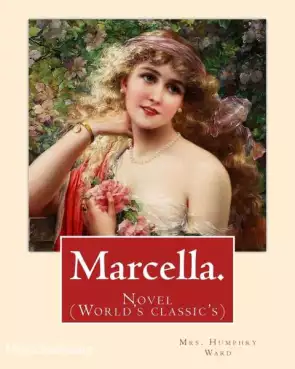
Marcella
Marcella is a novel by Mary Augusta Ward, first published in 1894.
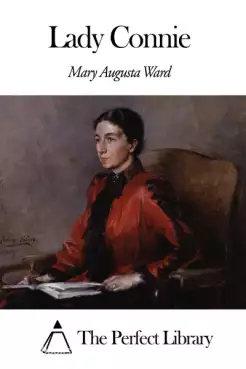
Lady Connie
Constance Bledlow is a beautiful monied 20 year old with the world at her feet. She arrives in Oxford to spend a few months with her impoverished uncle, a University reader, and his family. She conquers Oxford society and sets many hearts aflame, amo...
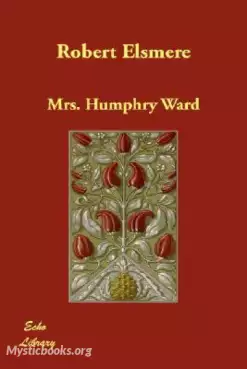
Robert Elsmere
Robert Elsmere is a novel by Mrs. Humphry Ward published in 1888. It was immediately successful, quickly selling over a million copies and gaining the admiration of Henry James.
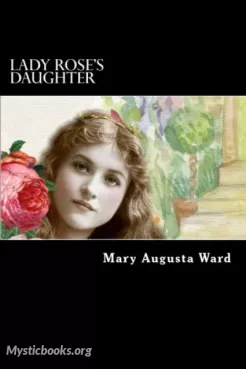
Lady Rose's Daughter
It is a historical novel that tells the story of a young girl named Lady Rose, who is the daughter of a famous actress. Lady Rose is brought up in a world of wealth and privilege, but she is torn between her loyalty to her mother and her desire to fi...

Marriage of William Ashe
**Marriage of William Ashe** delves into the complex dynamics of a marriage between a promising politician, William Ashe, and Kitty, a free-spirited and unconventional woman. Their union, born out of impulsiveness rather than careful consideration, i...

Delia Blanchflower
Delia Blanchflower is set amidst the backdrop of the Suffragist movement in England. The story revolves around the life of Delia, a young woman who inherits a fortune, and her involvement in the militant wing of the movement. The novel explores the c...

Missing
Set against the backdrop of World War I, 'Missing' follows Nelly Sarratt, a young woman whose life is upended when her husband, Lieutenant George, is reported missing in action. As the war drags on, Nelly grapples with uncertainty and grief while nav...

History of David Grieve
Set in England during the mid-19th century, 'History of David Grieve' follows the story of David Grieve, a young man who comes from a poor family and dreams of a better life. He falls in love with Lucy Grieve, the daughter of a wealthy industrialist,...